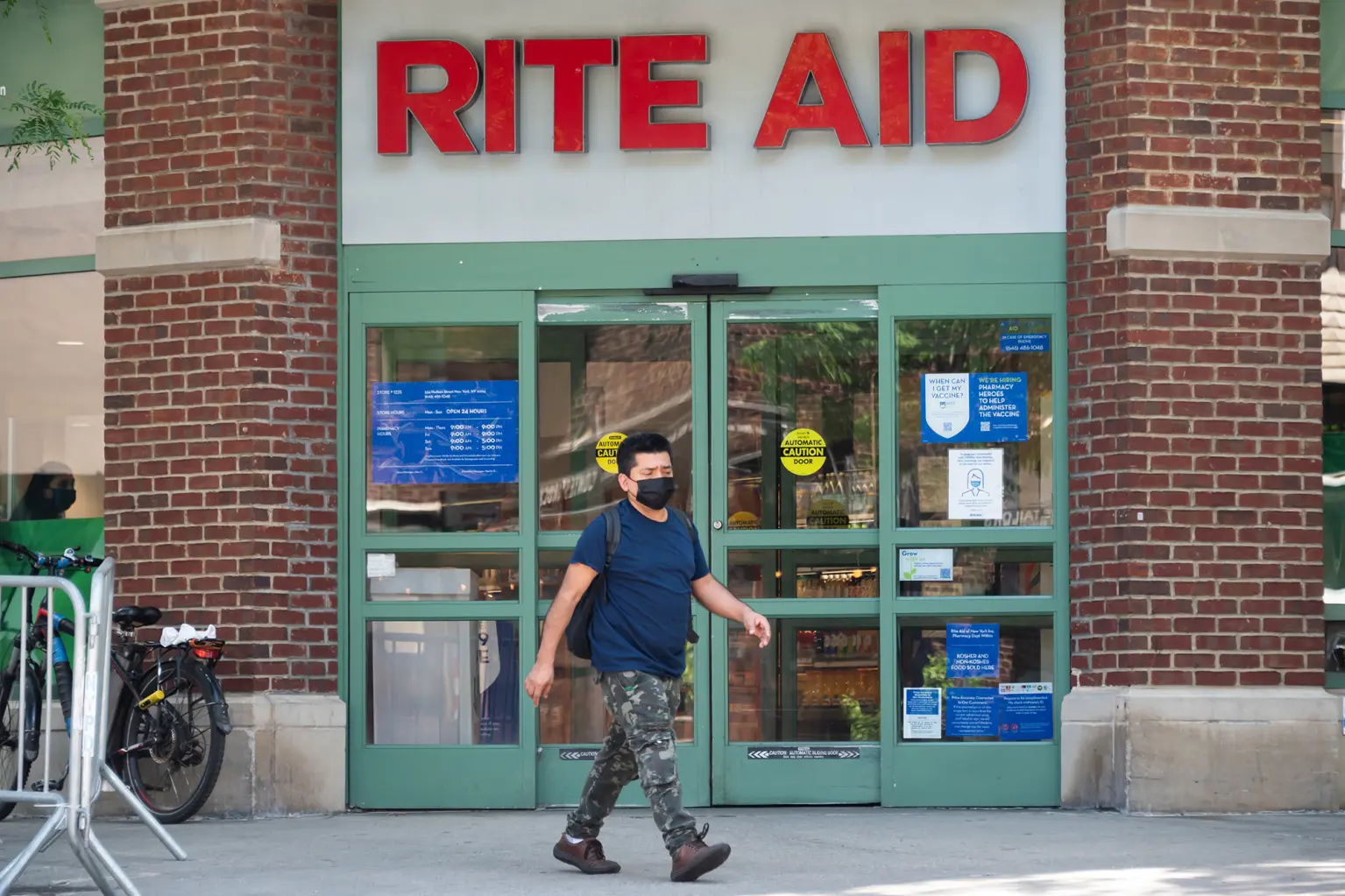Top Rite Aid executives grumbled about a widespread shoplifting problem in New York City after the retailer reported worse-than-expected quarterly results on Thursday.
Rite Aid CEO Heyward Donigan told analysts the company “experienced unexpected headwinds this quarter from front-end shrink, particularly in our New York urban stores.”
Donigan noted the company has begun “shrinking our footprint” in New York City as it proceeds with a plan to close dozens of less-profitable stores.
The company said a $5 million year-over-year increase in “shrink” – a term in the retail industry meaning losses related to theft, fraud or administrative errors – had cut into its profits. Rite Aid’s chief retail officer Andre Persaud expanded on the point – stating NYC-area losses from shoplifting had worsened despite the company’s efforts to improve “product protection.”
“I think the headline here is the environment that we operate in, particularly in New York City, is not conducive to reducing shrink just based on everything you read and see on social media and the news in the city,” Persaud said.
Rite Aid’s website lists a total of 318 stores in New York state, including 27 in Manhattan, 34 in Brooklyn and 18 in the Bronx. The drug store chain operates nearly 2,300 locations around the US.


“(We’re) seeing a higher level of brazen shoplifting and organized retail crime, and we are taking an active role in helping the police in their pursuit of shoplifters,” a Rite Aid spokesperson told The Post on Friday.
“Our organized retail crime team has partnered with local police precincts on approaches to mitigate this criminal activity and help make arrests and is actively working with multiple District Attorneys’ offices throughout New York City to address recidivist theft issues,” the spokesperson added.
The NYPD’s most recent statistics show a 42.4% increase in petty larceny incidents this year compared to 2021. Robberies are up more than 37%, while burglaries are up more than 32%.
Persaud said Rite Aid may put everything behind lock and key in neighborhoods where retail theft has weighed on store bottom lines, as well as testing pharmacy-only store formats.
“We’re looking at literally putting everything behind showcases to ensure the product’s there for customers who want to buy it,” Persaud added. “And then lastly, we’ve even had to go to the extent of using off-duty police officers in some of our stores, just into some of these communities as well.”

Rite Aid shares plunged as much as 29% in trading Thursday on the retailer’s dismal second-quarter results.
The company posted a net loss of $331.3 million, or $6.07 per share. Revenue plunged to $5.9 billion, down from $6.11 billion in the same period one year ago.
Rite Aid said the downtick in revenue was “largely due to a reduction in revenue from COVID vaccines and testing, store closures and a planned loss of covered lives at Elixir.”
The retailer’s stock is down about 66% this year.

As The Post has reported, NYC-area Rite Aid stores have been bombarded with theft this year – with shoplifters calmly taking items from shelves in plain view of cameras.
For example, the Rite Aid at the corner of Eighth Avenue and 50th Street in Hell’s Kitchen lost more than $200,000 in stolen merchandise over just a two-month span. The store closed in February.
“They come in every day, sometimes twice a day, with laundry bags and just load up on stuff,” one store employee told The Post about the Rite Aid thieves.
Critics have blamed District Attorney Alvin Bragg for backing bail reform plans they say have contributed to the problem.

In New York City, security guards at high-end stores in ritzy neighborhoods such as the West Village and SoHo told The Post they feel powerless to stop thieves who loot stores without fear of any consequences.
Major retailers have called out a rise in shoplifting incidents at their stores for more than a year. The National Retail Federation said “shrink” accounted for a massive $94.5 billion in losses for retailers in 2021 alone and warned of the rise of “organized retail crime,” or ORC.
“The factors contributing to retail shrink have multiplied in recent years, and ORC is a burgeoning threat within the retail industry,” NRF Vice President for Research Development and Industry Analysis Mark Mathews said in a statement.
Companies such as Home Depot and Best Buy have resorted to locking up items at their stores to prevent theft. In November 2021, Best Buy CEO Corie Barry said a rise in theft at stores was having a “traumatizing” effect on its staff and hurting the company’s profits.
Midwest grocery chain Hy-Vee unveiled an armed “retail security team” late last year in a bid to protect its shoppers and merchandise. More recently, Wegman’s was forced to scrap its self-checkout app due to shoplifting concerns.
.

